Saving the bees and supporting sustainable honey in Morocco and Palestine
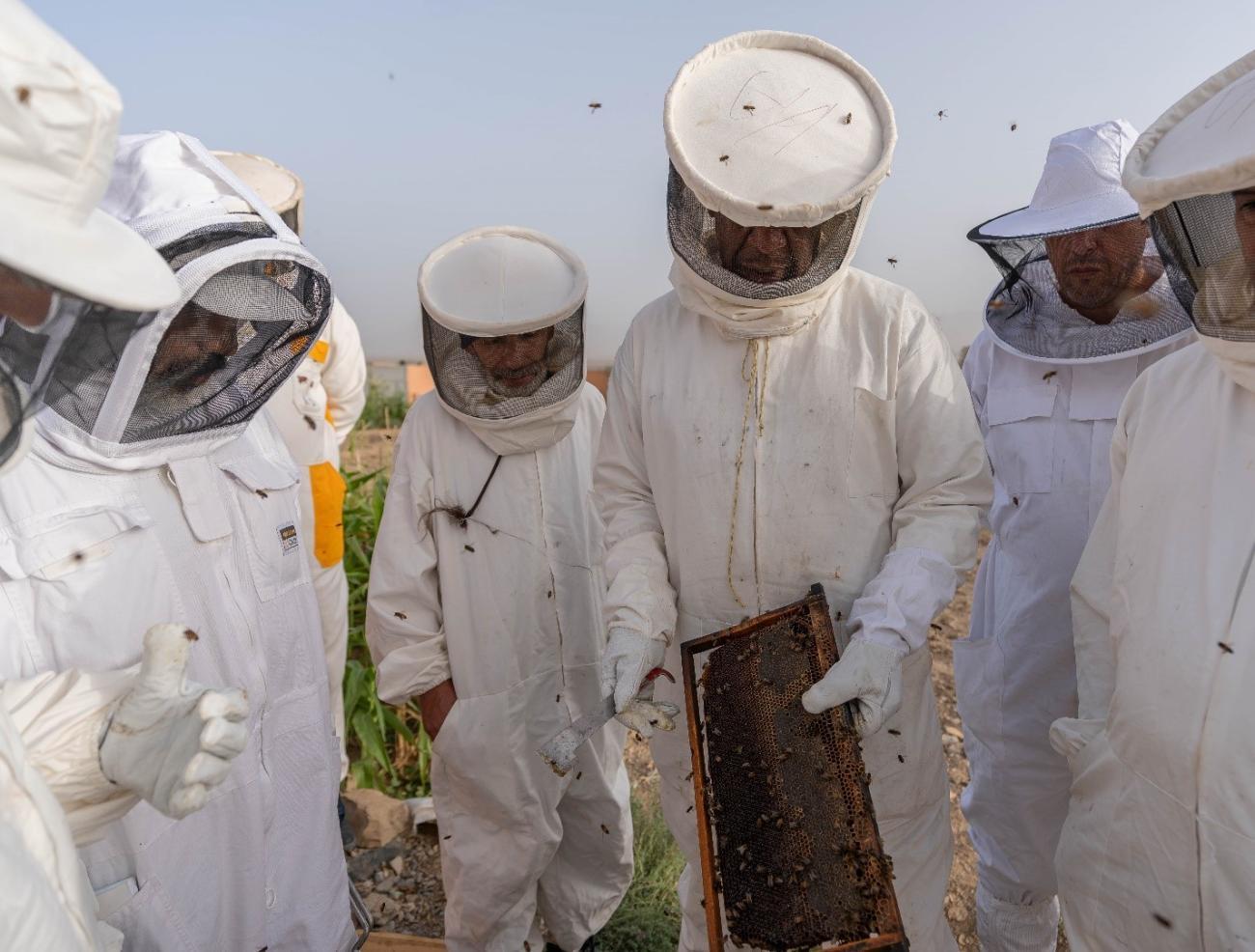
In the small town of Er-rich, nestled in the plains of Morocco’s Atlas Mountains, a group of local men and women settled into a packed room as an FAO beekeeping training got underway on one afternoon in March.
The room was full of excitement and anticipation; the beekeepers of Er-rich were eager to learn and do whatever they could to save the regions’ bees from extinction.
Through the course of the training, the beekeepers learnt about the Saharan yellow bee, a particularly resilient and non-aggressive species that is well-adapted to the local climatic and breeding conditions of the Atlas Mountains.
"Don't be afraid,” the instructor, Mohamed Aboulal, reassured the beekeepers. “This is the gentlest breed. That's what makes its neighbour to the north, the black bee, ‘yellow’ with jealousy,” he said with a smile. “It’s not only beautiful in its long yellow dress, it’s also docile, produces great honey and is a better forager, since it can travel up to 8 kilometers compared to only 3 kilometers for the ordinary bee.”
Despite these qualities, the Saharan yellow bee is under threat of extinction due to a combination of successive droughts in the region, the knock-on effects of pest control and the impact of other breeds of bee being introduced to the area.
Learning how to protect the Saharan yellow bee was of critical importance for this community of beekeepers in Er-rich; many of whom relied on the bees as a key part of their livelihoods.
They were eager to learn everything they could from Mohamed during the training, asking him many questions including the best methods for producing more queens to learning the techniques for artificial insemination.
Beekeeping: a passion from childhood
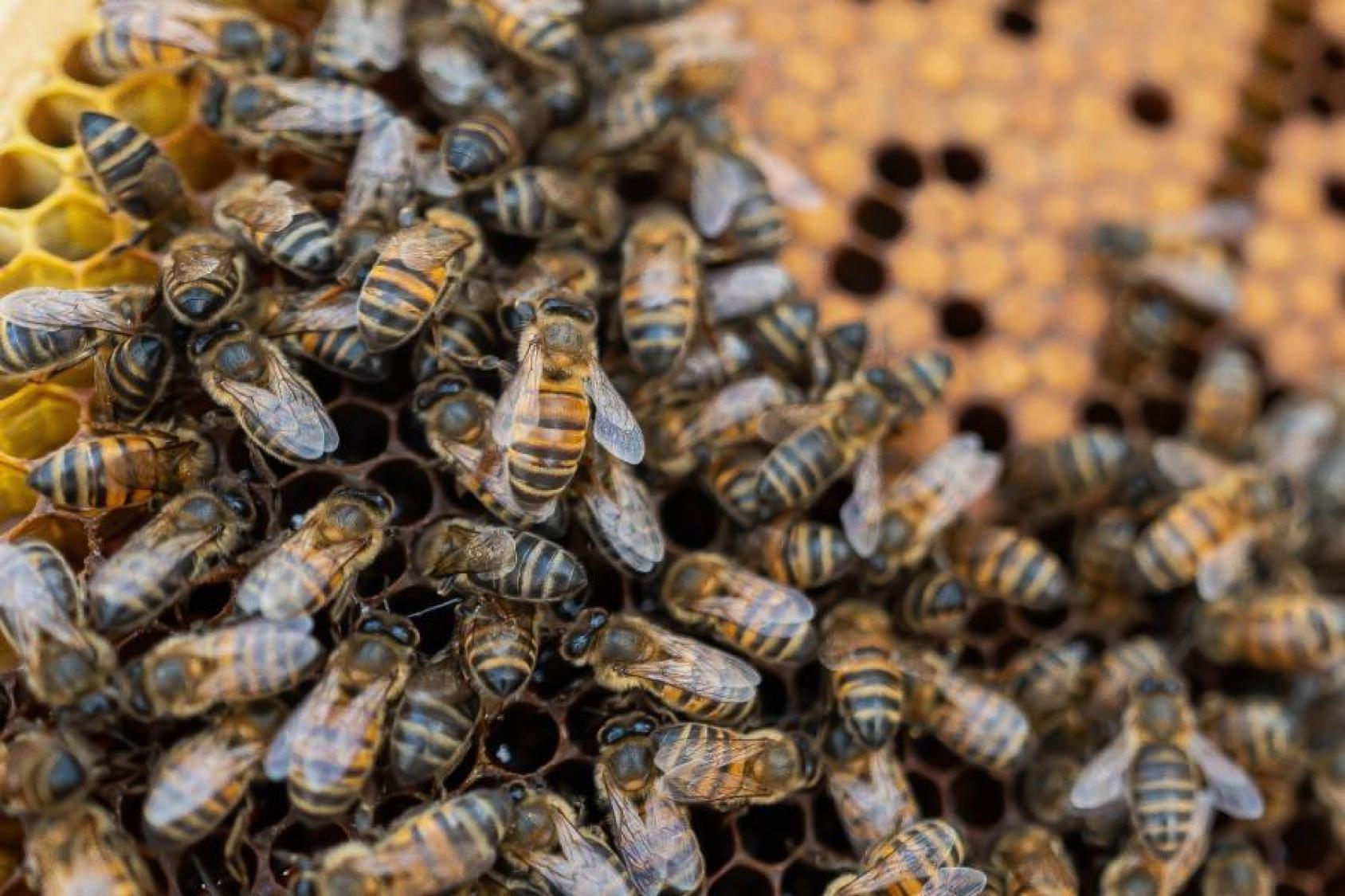
Mohamed, the instructor who led the FAO bee training course in Er-rich, dates his passion for bees back to when he was a young boy, and his father allowed him and his siblings taste honey straight from the wooden hives.
Today, as the President of the regional Chifae Beekeeping Cooperative and a national beekeeping association, Mohamed spends much of his time providing training courses and helping to build greater knowledge and understanding of the Saharan yellow bee.
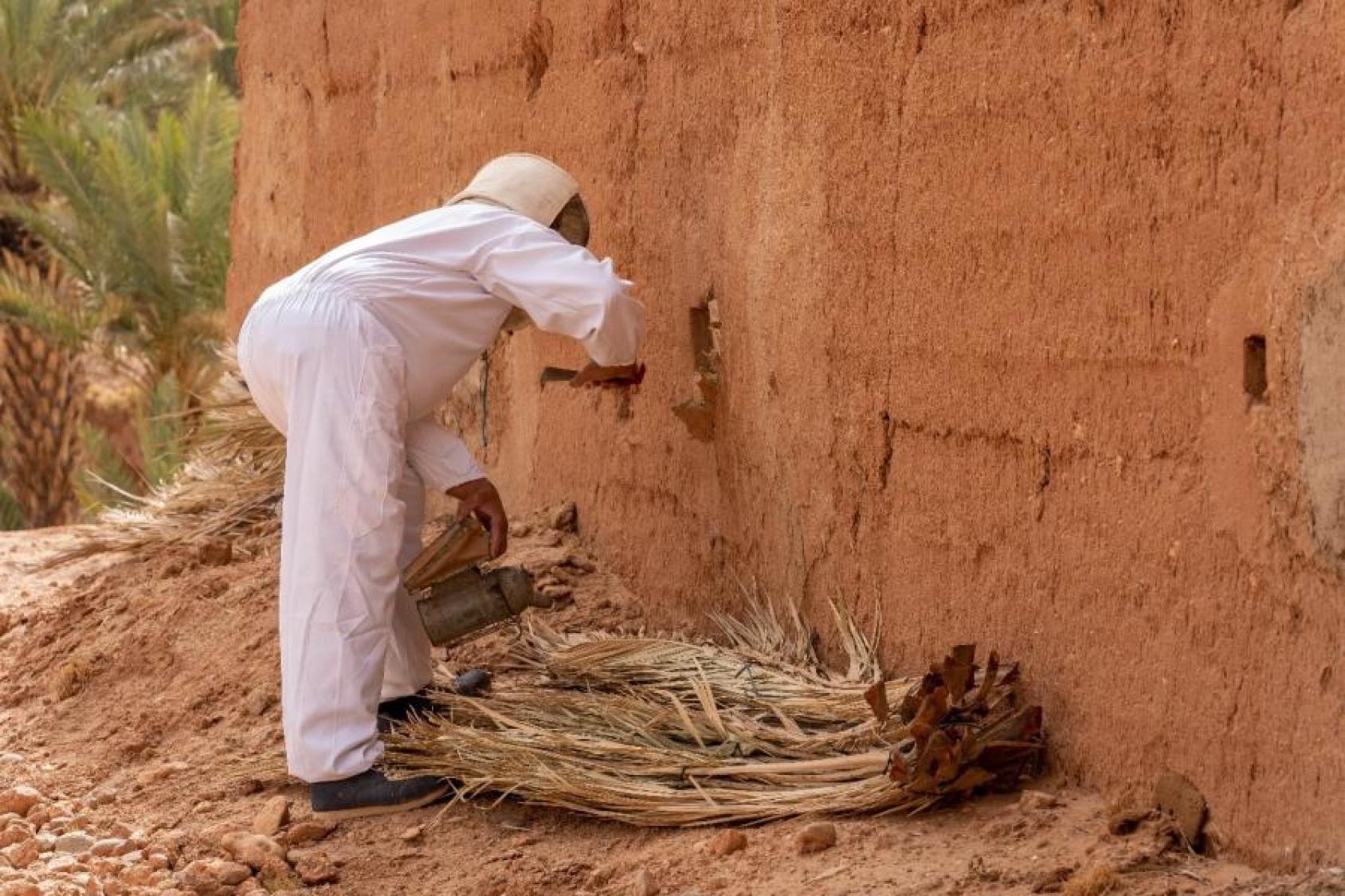
Mohamed is a regular visitor at the national renowned beekeeping centre, which holds many training courses in how to protect and preserve important species of bees.
Together with the support of Government of Morocco and other partners, FAO have established a new technical beekeeping centre, which, alongside the national center works to safeguard the Saharan Yellow Bee, improve bee keeping skills and help multiply and inseminate more queen bees.
Safeguarding the Saharan yellow bee plays an important role in protecting local agro-biodiversity, improving the incomes of smallholders and providing employment for women and youth.
Plan bee in Palestine: Honey sweetens prospects for farmers
For communities in Palestine, like the beekeepers of Er-rich, honey production also represents a vital source of income.
Aisha, who lives near the hills of Jericho in the West Bank, has always been fascinated by beekeeping. She started off beekeeping as a hobby, but after completing training with the Ministry of Agriculture several years ago, Aisha now runs a profitable business from her two beehives. With the income from the honey, she was able to send her daughter to law school and take care of her elderly mother.
“I didn’t complete my education, but I want to work,” she says. “I want to contribute to making an income for my family. My husband’s job doesn’t bring in enough money for us,” she says. “Now I am proud of myself. I am working on a project with my own hands that helps me to provide for my family.”
Recently Aisha’s business has grown even more after receiving support from the World Food Programme (WFP) and partner organization the Applied Research Institute Jerusalem.
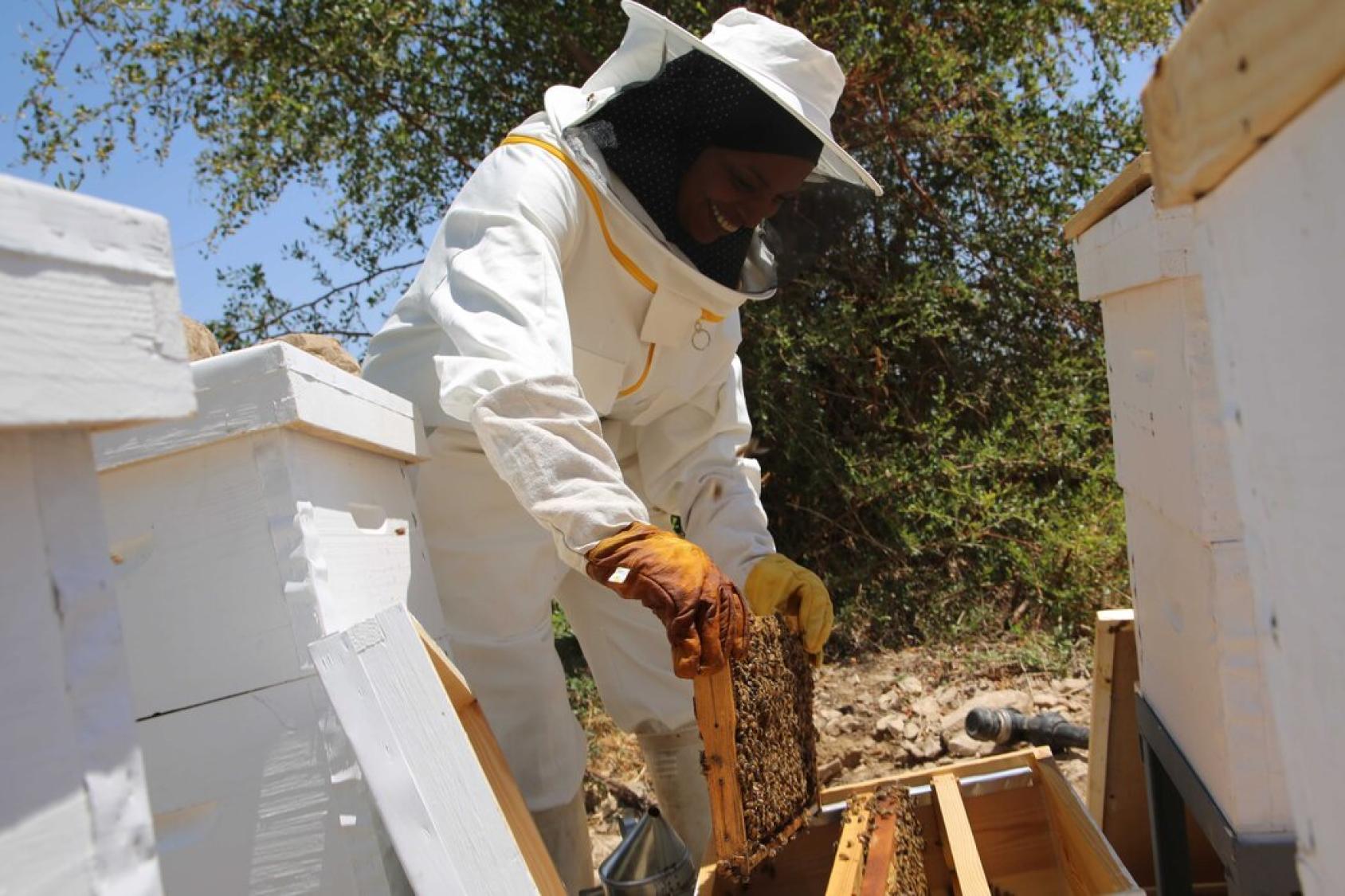
As well as beehives, WFP supports other small food producers in Gaza and the West Bank, including wicking beds, greenhouses and livestock farming. So far more than 6,000 people have benefitted from these interventions, helping increase household incomes and ensure businesses can adapt to climate related shocks.
Combined with years of protracted conflict, and economic stagnation, these weather extremes are taking their toll on Palestinian beekeepers and food producers.
“The heat is not good for the bees, so I built cardboard shelters and spray cold water on the ground around them to keep the temperature cooler,” says Aisha.
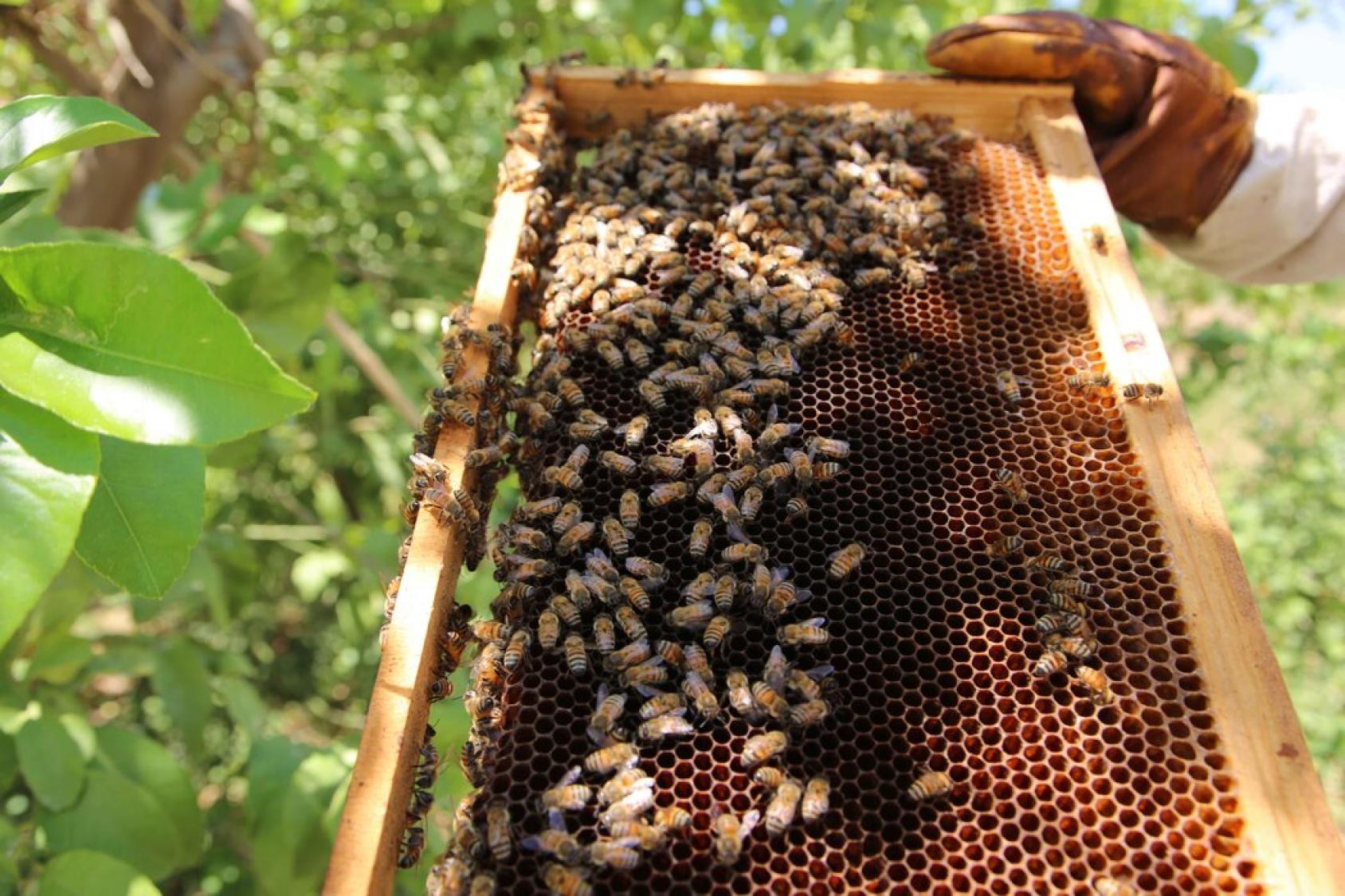
With the support from WFP and partners, Aisha plans to expand her honey trade to start making candles and cosmetic products.
“I encourage every woman to find a hobby, start a project, and stay dedicated,” she says. “Nothing brings more peace than being able to provide for yourself.”
This piece is based on two stories originally published here and here. Editorial support provided by the Development Coordination Office (DCO).
To learn more about our work in this area and beyond, please read the latest UNSDG Chair Report on DCO.





































